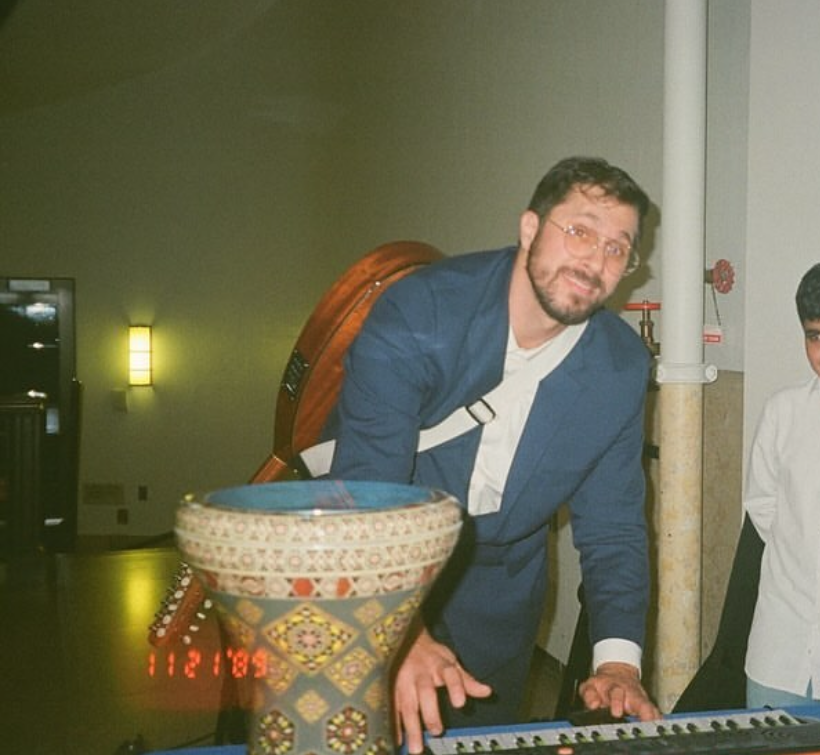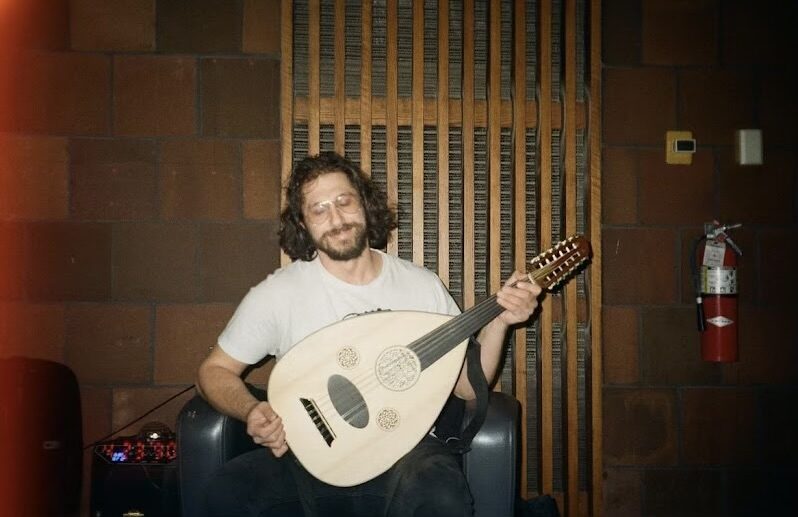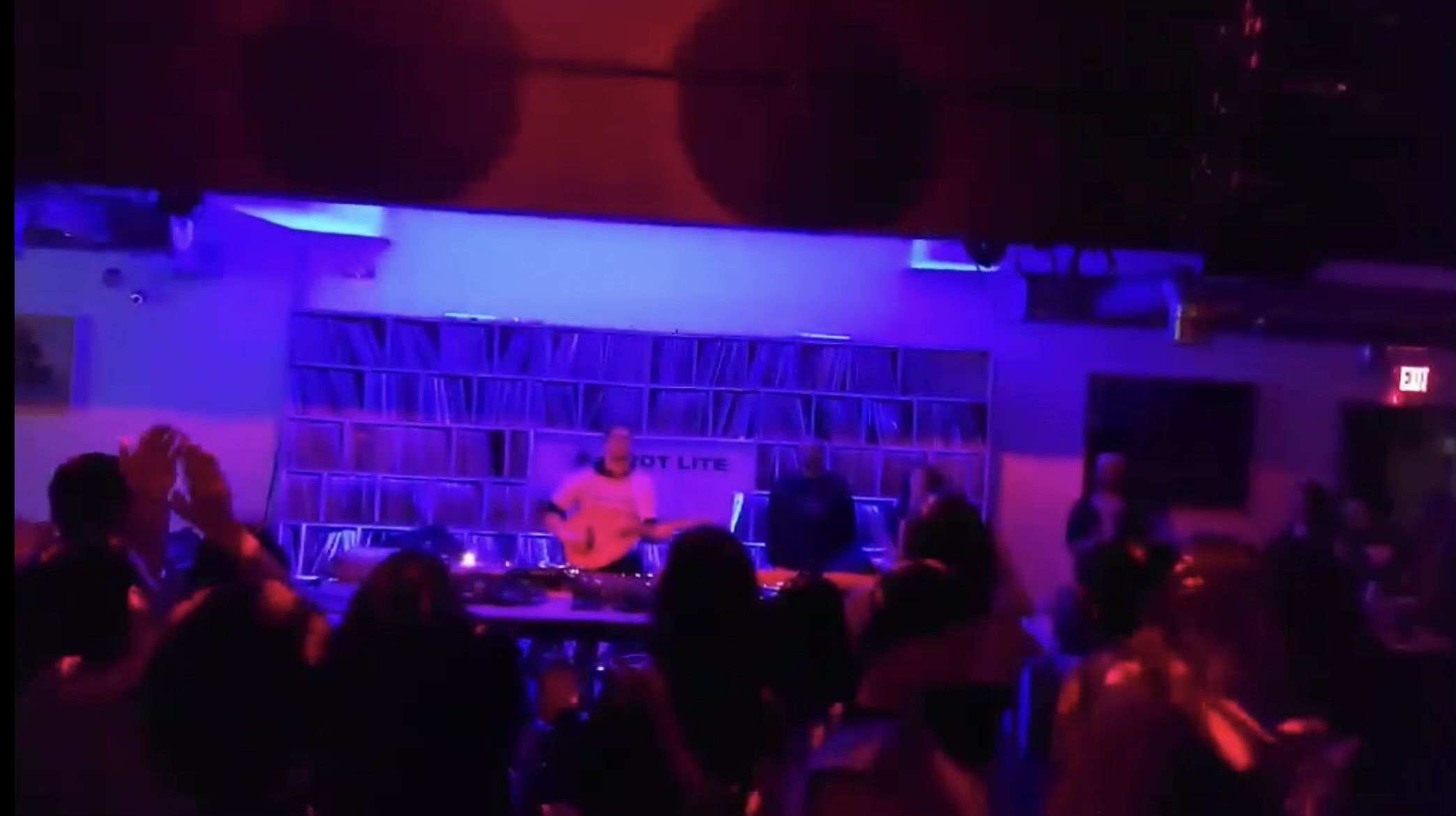"I Wanted to Break the Rules": 40 Minutes with Raphique Barakat

By: Layan Srour / Arab America Contributing Writer
Raphique Barakat, like many musicians, began his journey with the guitar before discovering the rich sounds of the oud. His passion for Arabic music started at the age of ten, influenced by Arab pop icons like Amr Diab and Nancy Ajram, along with the music his parents listened to. Born in Fresno, California, Raphique now calls the Metro Detroit area home, where he teaches, composes, and performs music and stand-up comedy.
You mentioned you were born and raised in Fresno, California. Why did you move to Detroit, Michigan?
After I graduated college, I came here for my sister’s wedding. I didn’t feel like I had many ties in Fresno. Since I had a lot of family here, I figured it would be a good place to move to and get to know my mom and dad’s side of the family more.
Was Arabic music a big part of your musical influence?
I didn’t know who Fairouz or Umm Kulthum was until I moved to Michigan. Whenever my grandparents would show me music, it was on a tape they made recording a radio station or something. So, I’d always hear these songs, but I wouldn’t know anything else other than the familiar sound.
My music journey began with playing death metal music after being in a worship band. I think a lot of death metal uses a lot of harmonic minors (which is the Nahawand (نهاوند) maqam), and in California, people really liked this ‘Eastern sound’.

How did you connect your music with your identity?
It was a bit difficult having a name like Raphique in a majority-white town. You get the “What kind of name is that? Where are you from? No, where were your parents from?” questions. I got into a routine of answering these questions. I just felt like I had no autonomy, but I felt like music kind of gave me autonomy, especially with how I want to connect with myself.
I started with guitar, but I didn’t play to get close to culture. I wanted to play music, and I was having a lot of fun with it. I’m pretty emotional, but I felt like music was a way for me to articulate my emotions before I had the words for them. When I moved to Michigan, I would go to all the open mics in the area to find other Arab musicians and the Arabic music scene.
When did you start getting into oud?
My Arabic was so broken that I couldn’t really practice it. But, I felt like practicing Arabic music would have been another way for me to learn the language. I thought, “Let’s listen to these songs, try to sing them, and then try to see what the words mean.” If I’m over here on this journey trying to get to know my roots, maybe my guitar should be on that same journey, so I bought an oud. Someone once said to me, “Oud is the grandfather of the guitar.” I wanted to, in a very nerdy way, figure out, what the similarities are.

How do you incorporate your culture, traditional music, or even oud, with your musical projects?
How do I not? It’s almost impossible not to.
Once I felt comfortable enough with the oud, I wanted to break the rules. Instead of only using it in weddings and celebrations, I started taking it to shows. How does the oud sound in jazz? How does the oud sound with house music? With a Bee Gees song? How would the oud sound with the soundtrack from Pirates of the Caribbean? I guess I can play Western music with this thing, so I did!
I used to do singer-songwriter guitar stuff. There’s nothing wrong with that, I had some of the best years of my life playing that kind of music! But, I wanted to keep adding, adding, and adding. I got into live looping and layering and that’s how I wrote my album.
Being able to practice Arabic music makes me happy. Getting to understand and perform it has helped me figure out the different ways to approach composing Arabic music. Currently, I am in an Arabic band, Hamzet Wasel, with Farah Afra and Layan Srour. I just finished an album under the name Shrinq Mountin, too.
What advice would you give to Arab Americans aspiring to enter the music world?
If you can’t climb the mountain, take a step. Don’t get discouraged.
About the Article and Author: Layan Srour, a Lebanese musician based in Detroit, Michigan, is passionate about blending her culture through music, research, and education in the United States. 40 Minutes With is a weekly feature where Layan interviews an Arab American musician, exploring their journey through music and culture in America. Connect with Layan on Instagram, Facebook, LinkedIn, or via email.
Want more articles like this? Sign up for our e-newsletter! Check out our blog here!









